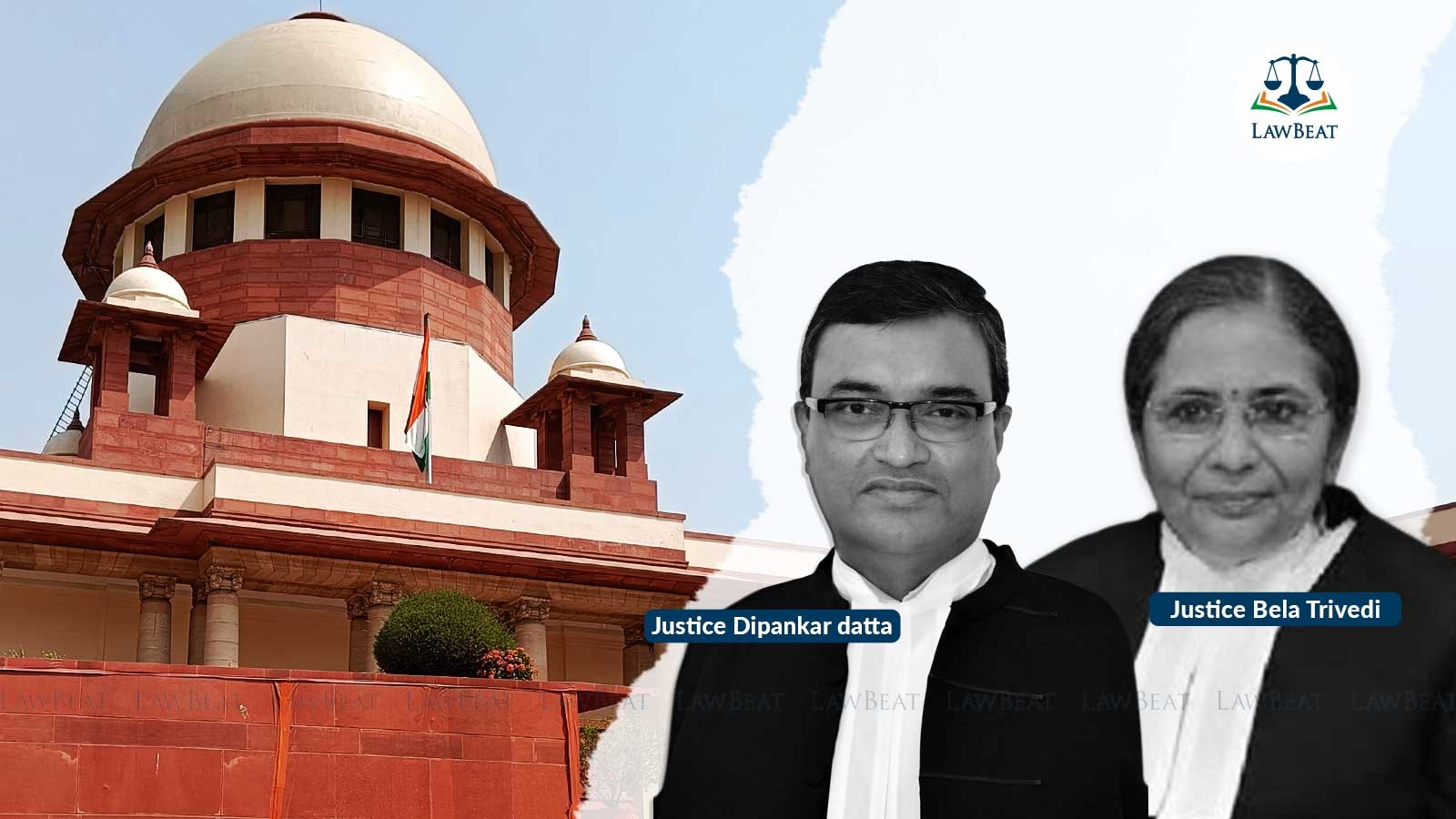Revenue records not documents of title: SC

SC said that in a dispute with respect to determination of title, merely pointing out the lacunae in the defendant’s title would not suffice and having instituted the suit for declaration
The Supreme Court has on November 20, 2023 emphasised that revenue records are not documents of title, as it set aside a Karnataka High Court's order and dismissed a civil suit decreed in favour of plaintiff on the basis of revenue documents, which were essentially fiscal in nature.
A bench of Justices Bela M Trivedi and Dipankar Datta said that the plaintiff failed to produce a single document of title in respect of the suit property.
"In a dispute with respect to determination of title, merely pointing out the lacunae in the defendant’s title would not suffice. Having instituted the suit for declaration, the burden of proof rested on the shoulders of the plaintiff to reasonably establish the probability of better title, which the plaintiff in the present case, has manifestly failed to do," the court said.
The court noted that in the case before the Commissioner, the plaintiff’s vendor was one of the applicants while the defendant’s predecessor-in-interest was one of the respondent Inamdars.
The court found that the Commissioner lucidly stated that the claimants were not tenants at the time of vesting and, therefore, the claims of, inter alia, the plaintiff’s vendor, were ordered to be rejected. It was further said that their respective survey numbers were to be registered in favour of the Inamdars under Section 9 of the Mysore (Personal & Miscellaneous) Inam Abolition Act, 1954, enacted for abolition of Inams in the State of Mysore, came into force on March 15, 1955.
"This, in our view, can have only one possible meaning, that the claim of the plaintiff’s vendor for occupancy right as a tenant was rejected, and that of the defendant’s predecessor-in-interest was acknowledged. The plaintiff’s vendor having failed to satisfy the condition of being vested with tenancy rights as on the date stipulated by section 9A and such order having remained unchallenged for all times, we are unable to agree with the argument advanced on behalf of the plaintiff," the bench said.
The court also rejected the plaintiff's argument referring to revenue entries containing the name of the plaintiff and the plaintiff’s vendor, to point out, "It is trite law that revenue records are not documents of title".
The bench said that in the present case, the Commissioner’s order distinctly denying the rights of occupancy to the plaintiff’s vendor was evidence that rendered these revenue entries unworthy of acceptance.
Referring to the sale deed executed in favour of the plaintiff, the court said that it also tilted the balance against him.
"The deed simply states that the plaintiff’s vendor traces her title not to a grant in her favour by the government, but through a sale deed executed in her favour. Further, there is a categorical recital in the deed that the property is neither Inam land nor tenanted land, and that there is no legal impediment to the sale of such property. Some element of mischief being present is clear inasmuch as a relevant fact was concealed, i.e., the plaintiff’s vendor had indeed applied for occupancy rights under the Act but had failed to secure them. Such an application would never have been necessary, had the property not been Inam or tenanted land, thus laying bare the deficiency in the plaintiff’s title," the court noted.
The High Court, while observing that there existed a lawfully registered sale deed in favour of the plaintiff, failed to identify this inherent defect in the title claimed by the plaintiff, the bench added.
Further, the bench said, "It is settled law that a vendor cannot transfer a title to the vendee better than he himself possesses, the principle arising from the maxim nemo dat quod non habet, i.e., "no one can confer a better title than what he himself has". In the present case, the plaintiff’s vendor having been denied the right of title in the land by the Commissioner’s order, could not have conveyed the same to her vendee".
In contrast, the bench pointed out, that when the sale deed of June 20, 1984 executed in favour of the defendant was examined, there was an unequivocal and categorical recital that the vendor purchased the land from K Srinivasa Murthy, in whose favour occupancy rights were granted vide the Commissioner’s order.
"A comparative study of the two sale deeds leaves none in doubt that the defendant’s sale deeds, supported by the Commissioner’s order, weigh heavier in the scales of justice as compared to the plaintiff’s sale deed, which is only supported by revenue documents," the bench said.
The court also pointed out that the plaintiff had placed on record endorsements issued by the Commissioner in favour of four other tenants, but had failed to produce one in his own vendor’s name.
"We cannot help but take an adverse view of the same against the plaintiff, since it only goes towards making denser the cloud which has been cast on the plaintiff’s title," the bench said.
The court, thus, held that the plaintiff had been unable to assert his case to a high degree of probability.
It found that the High Court was remiss in reversing the findings of facts rightly arrived at by the first appellate court.
"The decision to adopt the trial court’s approach of interpreting the Commissioner’s order within the framework of the revenue records that were exhibited was yet another aspect in which the High Court fell in error. An attempt ought to have been made by the High Court to harmoniously read the Commissioner’s order with the provisions of the Act and to interpret the same so as to render it in consonance with the law, the failure of which leads to the inescapable conclusion that the same is indefensible," the court said.
Case Ttile: P Kishore Kumar Vs Vittal K Patkar
